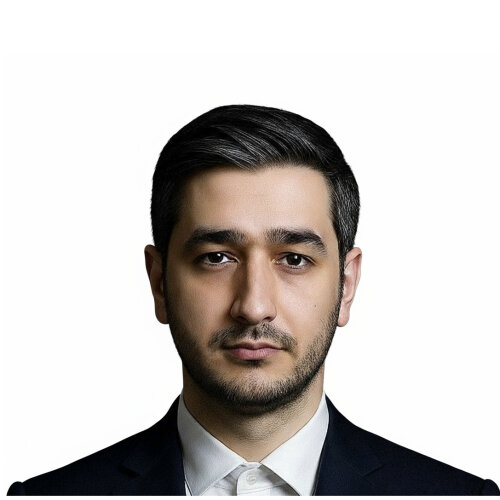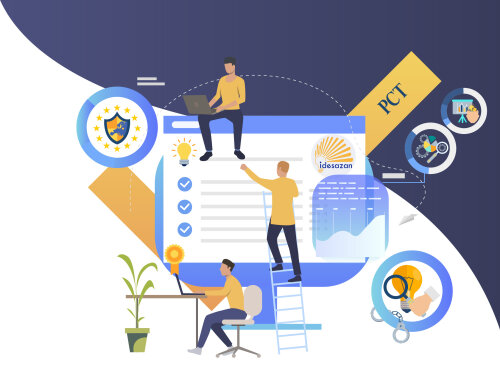Best Media, Technology and Telecoms Lawyers in Iran
Share your needs with us, get contacted by law firms.
Free. Takes 2 min.
Or refine your search by selecting a city:
List of the best lawyers in Iran
About Media, Technology and Telecoms Law in Iran:
Media, Technology and Telecoms are rapidly growing industries in Iran, with advancements in technology constantly reshaping the landscape. The legal framework governing these sectors is complex and dynamic, requiring expert guidance to navigate successfully.
Why You May Need a Lawyer:
Whether you are a content creator facing copyright issues, a technology company dealing with data protection regulations, or a telecom provider looking to expand your services, having a lawyer specializing in Media, Technology and Telecoms law can help protect your interests and ensure compliance with local regulations.
Local Laws Overview:
The legal framework for Media, Technology and Telecoms in Iran is primarily regulated by the Press Law, Cybercrime Law, and Telecommunications Act. These laws govern issues such as freedom of expression, online content regulation, data privacy, intellectual property rights, and licensing requirements for telecom services.
Frequently Asked Questions:
1. What are the key regulations governing media content in Iran?
The Press Law regulates media content in Iran, ensuring that publications adhere to ethical standards and do not violate national security or public morality.
2. How are intellectual property rights protected in Iran?
Intellectual property rights in Iran are protected through copyright, trademark, and patent laws, which provide legal mechanisms for creators to safeguard their original works.
3. Are there specific regulations for data protection in Iran?
Yes, the Cybercrime Law in Iran includes provisions for data protection and privacy, outlining requirements for data processing, storage, and transfer.
4. What licenses are required for operating telecom services in Iran?
Telecom providers in Iran must obtain licenses from the Communications Regulatory Authority (CRA) to operate legally and comply with regulations related to network infrastructure and service provision.
5. How is online content regulated in Iran?
Online content in Iran is subject to strict censorship laws, with the government monitoring and filtering websites deemed to contain prohibited material.
6. What legal issues may arise in the use of social media in Iran?
Legal issues related to social media in Iran include defamation, privacy violations, and spreading misinformation, all of which are punishable under local laws.
7. How can I protect my company's data from cyber threats?
Implementing robust cybersecurity measures and complying with data protection regulations can help protect your company's data from cyber threats in Iran.
8. Can foreign companies operate in the Media, Technology, and Telecoms sector in Iran?
Foreign companies can operate in these sectors in Iran through joint ventures, partnerships, or establishing a local presence, subject to licensing requirements and regulations governing foreign investments.
9. How can I resolve disputes related to Media, Technology, and Telecoms in Iran?
Disputes in these sectors can be resolved through negotiation, mediation, or legal proceedings in Iranian courts, with specialized lawyers guiding you through the process.
10. What are the penalties for violating Media, Technology, and Telecoms laws in Iran?
Violations of these laws in Iran can result in fines, sanctions, loss of licenses, or even imprisonment, emphasizing the importance of legal compliance in these sectors.
Additional Resources:
For more information on Media, Technology, and Telecoms laws in Iran, you can refer to the Communications Regulatory Authority (CRA), the Ministry of Culture and Islamic Guidance, and legal firms specializing in these sectors.
Next Steps:
If you require legal assistance in navigating the complex landscape of Media, Technology, and Telecoms laws in Iran, it is advisable to consult with a knowledgeable lawyer who can provide tailored advice and representation to protect your interests and ensure compliance with local regulations.
Lawzana helps you find the best lawyers and law firms in Iran through a curated and pre-screened list of qualified legal professionals. Our platform offers rankings and detailed profiles of attorneys and law firms, allowing you to compare based on practice areas, including Media, Technology and Telecoms, experience, and client feedback.
Each profile includes a description of the firm's areas of practice, client reviews, team members and partners, year of establishment, spoken languages, office locations, contact information, social media presence, and any published articles or resources. Most firms on our platform speak English and are experienced in both local and international legal matters.
Get a quote from top-rated law firms in Iran — quickly, securely, and without unnecessary hassle.
Disclaimer:
The information provided on this page is for general informational purposes only and does not constitute legal advice. While we strive to ensure the accuracy and relevance of the content, legal information may change over time, and interpretations of the law can vary. You should always consult with a qualified legal professional for advice specific to your situation.
We disclaim all liability for actions taken or not taken based on the content of this page. If you believe any information is incorrect or outdated, please contact us, and we will review and update it where appropriate.
Browse media, technology and telecoms law firms by service in Iran
Iran Attorneys in related practice areas.
Browse media, technology and telecoms law firms by city in Iran
Refine your search by selecting a city.










